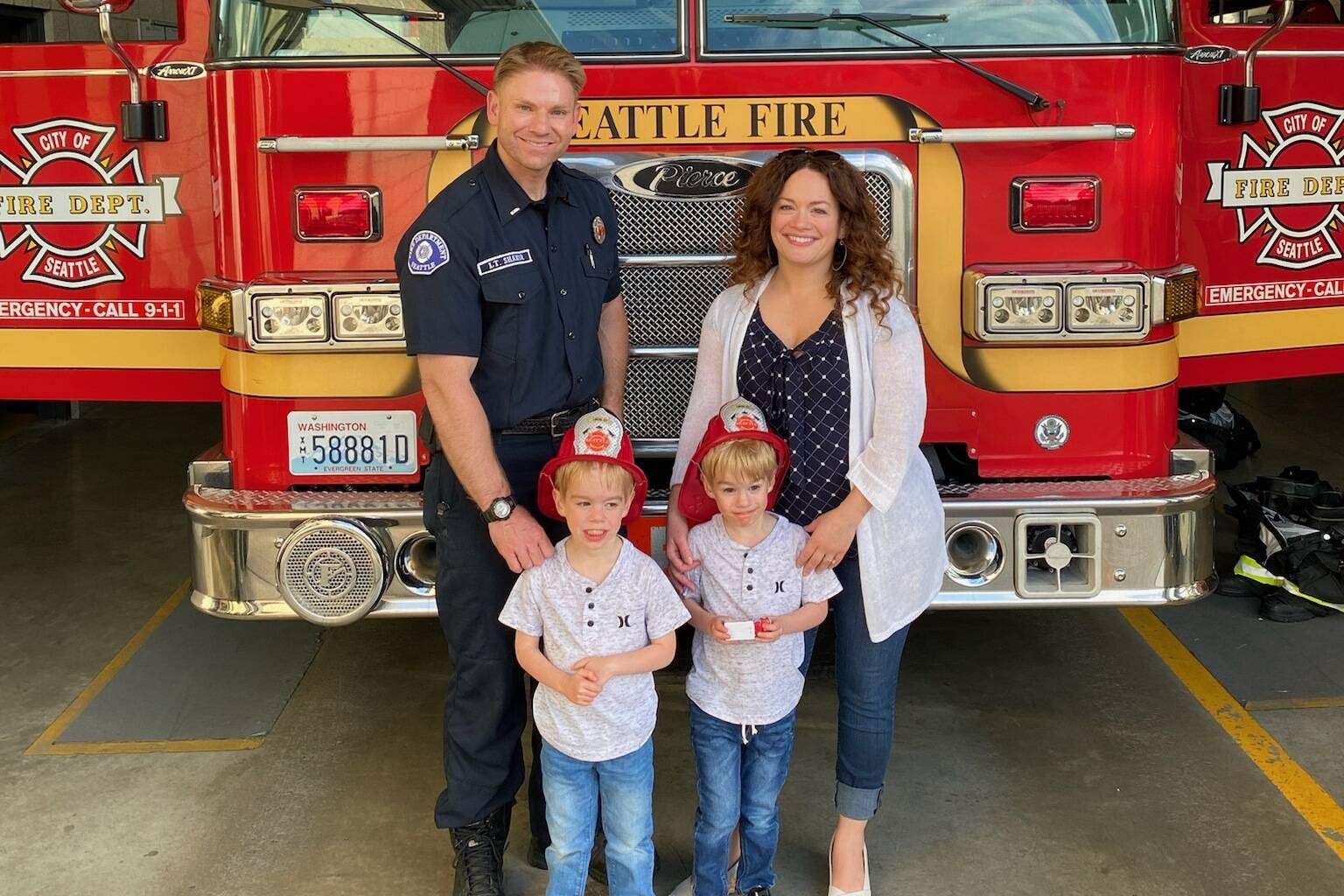St. Elizabeth’s Hospital’s newly-minted president has a pair of white tennis shoes sitting under her desk, because she never knows if she’s going to have to work the floor.
Danna Shaner, who knew she wanted to be a nurse ever since she was 16, officially took the highest position at the Enumclaw on June 10.
She never thought she’d be in administration. After graduating from Shoreline Community College in 2002 , her first job was a night shift nurse on a medical surgery unit. She started at a Swedish hospital before following a boss to Virginia Mason in 2006 (before it was Virginia Franciscan Health).
There she stayed for 18 years.
“Half of it was night shift, bedside nursing,” Shaner said.
From there, she went on to be an assistant manager, manager, and then eventually the clinic director at the Federal Way Regional Medical Center in 2016. From there, she became a market director and, finally back to the present, has taken the president role at St. Elizabeth.
As her title suggests, Shaner is responsible for all things that happen at the facility.
“A lot of it is reactive day stuff,” she said, though strategic planning is also a big part of it — like expanding care on the Plateau. “There’s been a few gaps here and there that we’re trying to fill.”
For example, orthopedics and gastrointestinal; “We have more needs than just one doctor,” she said. “… the community around us is exploding.”
But right now, the hospital is stable, Shaner said, adding that the emergency department sees between 30 to 50 people a day.
It hasn’t always been this way, though — St. Elizabeth nurses have picketed at least twice in the last five years.
One of the biggest issues was staffing, especially nurse-to-patient ratios.
In 2019 and 2022, nurses said the ratio was as high as one to six; several nurses at the pickets said trying to care for six patients at once was very unsafe for not just the patients — a 2002 Journal of the American Medical Association study claimed the odds of a patient death increases by 7% for each additional patient a nurse takes on — but the nurses, who become exhausted, and thus more prone to making mistakes.
Wages were also a problem, nurses said, adding that many co-workers, after being trained, leave to go to other hospitals, even in the same health system.
Shaner said these issues have been resolved before she came onboard, saying nurse to patient ratio has been brought down to 1 to 4 (though it can increase up to 1 to 5 if a patient requires little care).
As for pay, “there has not been a complaint that I’ve heard since I’ve been here,” she continued.
But not everything is perfect, and Shaner acknowledged some of the difficulties with running a smaller hospital.
“You lose one person in the department and… when you’re small, that’s half the team,” she said, adding that she’s actively trying to fill some open positions.
Even so, Shaner said the team she has is awesome.
“I think the team… feels really supported by their leadership, because when we do get in those situations where we have someone call out and we wouldn’t be able to meet that ratio, the leader comes into work… and work the floor, whether it’s day or night,” she said, hence her tennis shoes. “The relationship I see here between the leader and the frontline employees is really healthy.”
Shaner has been on the floor a few times in the Emergency Department and the operating room — not helping patients, but observing how her employees work. However, she hopes to get some updated training that would allow her to do more, if necessary.
Of all the things she misses about nursing, it’s the instant gratification of helping a patient that she misses the most.
“There’s times when I would see someone three or four years later and [they say], ‘you took care of my husband when he was dying, and you have no idea the difference you made to our family,’” she said. “That’s amazing.”
Outside of being president, Shaner is also a wife to a Seattle firefighter and mother to two six-year-old identical twins, and during the pandemic, picked up candle making as a hobby. You may see her downtown on date nights, and she eventually wants to move to the Plateau from Renton.
AWARDS
St. Elizabeth Hospital is often recognized for its service to patients.
Most recently, the facility was one of 13 rural hospitals honored by the Washington State Hospital Association (WSHA) for various quality improvement it has made, like offering updated trainings, greenhouse gas emission monitoring, better screening for pregnancy and postpartum status in the emergency department, and more.
Hospitals that achieved a score of five (out of ten) received the recognition; St. Elizabeth scored an eight.
This is the second year in a row the WSHA has recognized the hospital.
St. Elizabeth was also recognized by the American Heart Association this year for its efforts to improve outcomes for patients with heart disease and strokes and was named one of America’s best maternity hospitals by Newsweek in 2023.


